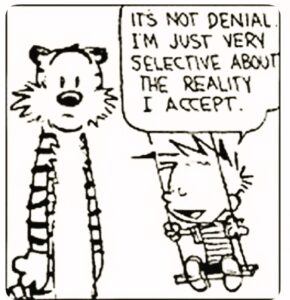Every Story Has More Than One Side—Are We Willing to Listen?
We, humans, are natural storytellers. Across time and terrain, we have created mythological tales, chronicled historical recollections, and passed down our cultural legacies, ensuring our voices echo through generations.
But storytelling isn’t just cultural-it’s deeply personal. The way we define ourselves, the struggles we overcome, and victories we claim become the stories we live by, shaping our identities. The stories we tell ourselves define our perception of reality.
Yet, the tale we tell about our lives isn’t the only version. What feels like a hard earned life to us might seem entirely different to another. In our own tales, we may be the heroes—but in another’s, we could be the villain.
How Perspectives Takes Shape
Each of us builds our worldview over time. The place we are born, the culture we grow up in, the beliefs that shape us, the values we hold onto, and the biases we ignore—all influence how we interpret the world.
No two individuals perceive life in exactly the same way. Reality isn’t a single objective truth—it is fluid, shaped by interpretations.
As Nietzsche observed, “There are no facts, only interpretations. “
What feels acceptable and natural to one person may seem unfamiliar or even puzzling to another.
The perspectives we create act as a lens—sometimes sharpening our vision, sometimes distorting it.
The Challenge of Perspectives
We often stand by our thoughts and opinions, convinced they hold the most truth. Others do the same. We become fixated on our own righteousness. Yet, in truth, both viewpoints may hold value. Truth is rarely singular—it can exist in multiple forms at once.
Ignorance of One’s Own Blind Spots

Stories we live by
Our knowledge of the world is incomplete, and we often fail to recognize our unawareness and blind spots . By acknowledging how much we don’t know is one of the most important lessons of all. The more we recognize our own limitations, and gaps in our knowledge, the more open we become to learning from others.
Respecting different perspectives allows us to step beyond our own experiences and embrace the richness of human thought.
As historian Will Durant once observed, “Total perspective is an optical illusion.”
Similarly, Nietzsche’s theory of perspectivism reminds us that there is no absolute truth—only many truths.
The Beauty of Many Stories
Every story has more than one angle-mine, yours, and countless others waiting to be told.
Life isn’t just about clinging to our own version of truth—it’s about listening to others. When we step outside our personal narratives, we cultivate empathy, wisdom, and a richer understanding of the world.
So, do we dare widen our perspective? Or will we stay confined to the pages we have already written?

Reality is not singular




